Six countries that start with D, Denmark, Dominican Republic, Djibouti, Dominican Republic, Democratic Republic of Congo and Democratic People's Republic of Korea. One is based in Europe, two in North America, two in Africa and one in Asia.
These countries are all quite different from one another, but they all have interesting things to offer visitors. Denmark, for example, is known for its beautiful landscapes and friendly people. Dominica, on the other hand, is known for its lush rainforests and incredible wildlife. We will delve into each one and explore every country that starts with D.
| # | Country |
|---|---|
| 1 | Denmark |
| 2 | Dominican Republic |
| 3 | Djibouti |
| 4 | Dominica |
| 5 | Democratic Republic Of Congo |
| 6 | Democratic People's Republic of Korea |
1. Denmark
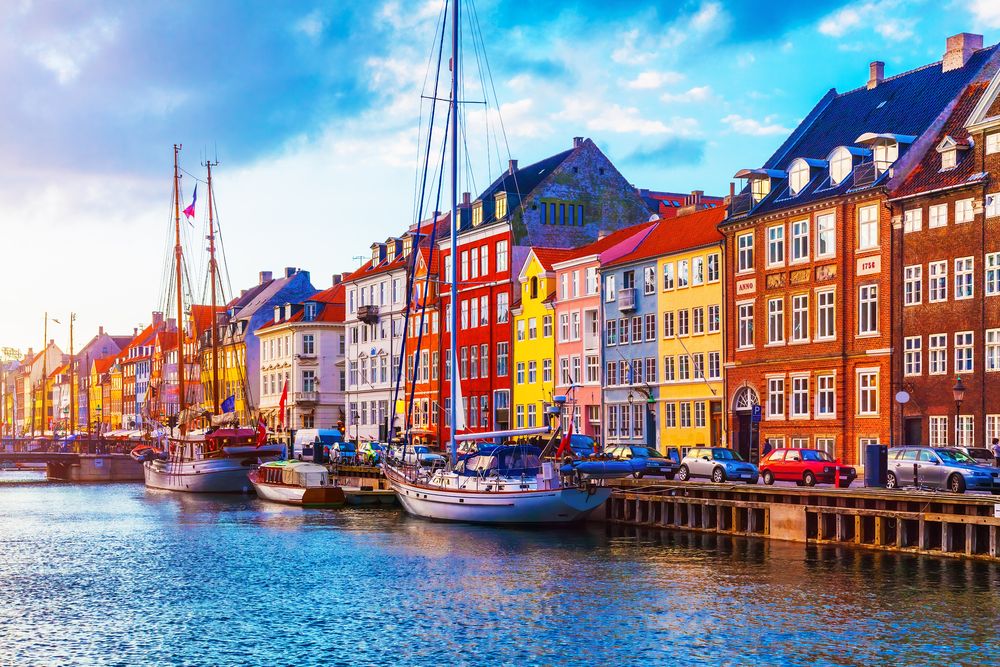
Denmark is located in Northern Europe, and its borders are mostly surrounded by the North Sea (the country’s only land border is with Germany). The country is made up of the peninsula Jutland (which represents two thirds of Denmark’s land area) and over 400 islands, situated along the eastern border of Jutland.
Denmark, Norway and Sweden make up Scandinavia, a region in Northern Europe. Denmark is known for its long and intriguing history (particularly the infamous Danish Vikings) and its consistent status as one of the happiest places in the world, as evaluated by the annual World Happiness Report. Denmark is the 8th most expensive country in the world to live in (as of 2022). This is largely due to the country’s high level of taxes.
But, to counteract these living costs, Denmark has a very high level of employment. In fact, with 74% of 15-64 year olds being employed in Denmark, this is 8% higher than the OECD average employment figure. The average working week in Denmark is 37 hours. Furthermore, just 1% of Danes work excessive hours as part of their paid employment, which is significantly lower than the 10% average stated by the OECD.
- Capital city: Copenhagen
- Location: Northern Europe
- Bordering countries: Germany
- Population size: 5.8 million (as of 2020)
- Currency: Danish krone (commonly abbreviated to DKK)
- Official language: Danish
- Major towns and cities: Copenhagen, Aarhus, Aalborg, Odense
- Religion: Evangelical Lutheran
The history of Denmark can be traced all the way back to 14,000 years ago (just after the last Ice Age), which is when we believe the first inhabitants to have settled in Jutland. These early settlers continued to establish villages and settlements, across both Jutland and the surrounding islands. In 800 AD, the country’s infamous Vikings rose in global power, to become a force feared across the world.
The Vikings split Denmark into a number of chieftains, each of which had separate regional power structures in place. However, by the 1100s, the Viking era ended, and it wasn’t till the 1300s that Denmark became stable again, with the crowning of Queen Margrethe as Denmark’s first ever official head of state.
To this day, Denmark still has a monarch, but the monarchy is constitutional (meaning that the monarch’s powers are limited by the country’s democratic constitution). Alongside its history, one of the things that Denmark is most famous for is its high standard of living and strong infrastructure. Consistently, Denmark is named as one of the happiest places to live in the world. And this status spans social, economic and environmental factors.
Denmark’s position in the Better Life Index shows itself to be considerably higher than the global average for employment, life satisfaction, health and education. In terms of wage and employment, the employment figure for Denmark is 8% higher than the OECD average. The average annual household disposable income in Denmark is $33,774, which is higher than the OECD average ($30,490).
Denmark takes immense pride in its welfare system, which is recognised across the world for its progression and fairness. Plus, not only do college students not have to pay loans, but they are also given a $900 monthly stipend to help them cover living costs. As a result, it’s hardly surprising that 82% of 25-64 year olds in Denmark have a higher secondary education qualification. The country also has good relations with the United States as a fellow member of NATO.
In addition to this, the country provides free, universal healthcare to all its citizens. All in all, it’s hardly surprising that the average life satisfaction in Denmark was ranked at 7.5 out of 10 (markedly higher than the 6.7 OECD average).
2. Dominican Republic
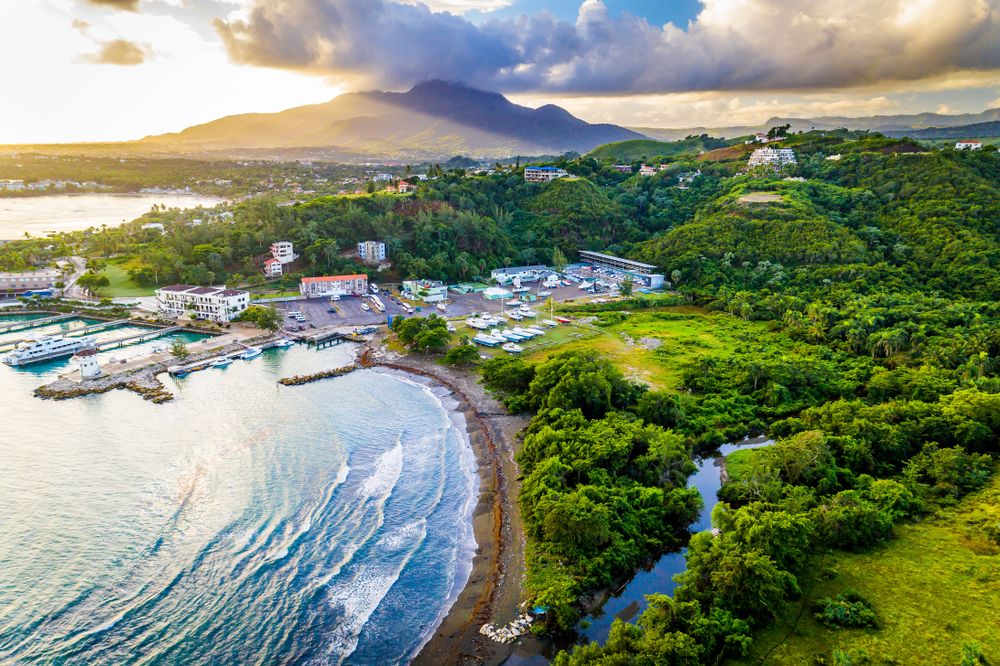
The Dominican Republic is a country in the Caribbean. It is one of the largest Caribbean nations by both area and population. The Dominican Republic is a parliamentary democracy with a president, who is both head of state and head of government. The country has three major geographical regions: the Cibao Valley in the north, the Central Range in the center, and the lowlands and mountains in the south. The capital city is Santo Domingo, which is also the largest city in the country, is located next to the mouth of the Ozama River.
The Dominican Republic borders Haiti to the west, the Atlantic Ocean to the north, and the Caribbean Sea to the south. It shares maritime borders with Puerto Rico and co-owns the island of Hispaniola with Haiti. The country is home to the one of the largest hot springs in the world, Boiling Lake. It is second only to the Frying Pan Lake in New Zealand
3. Djibouti
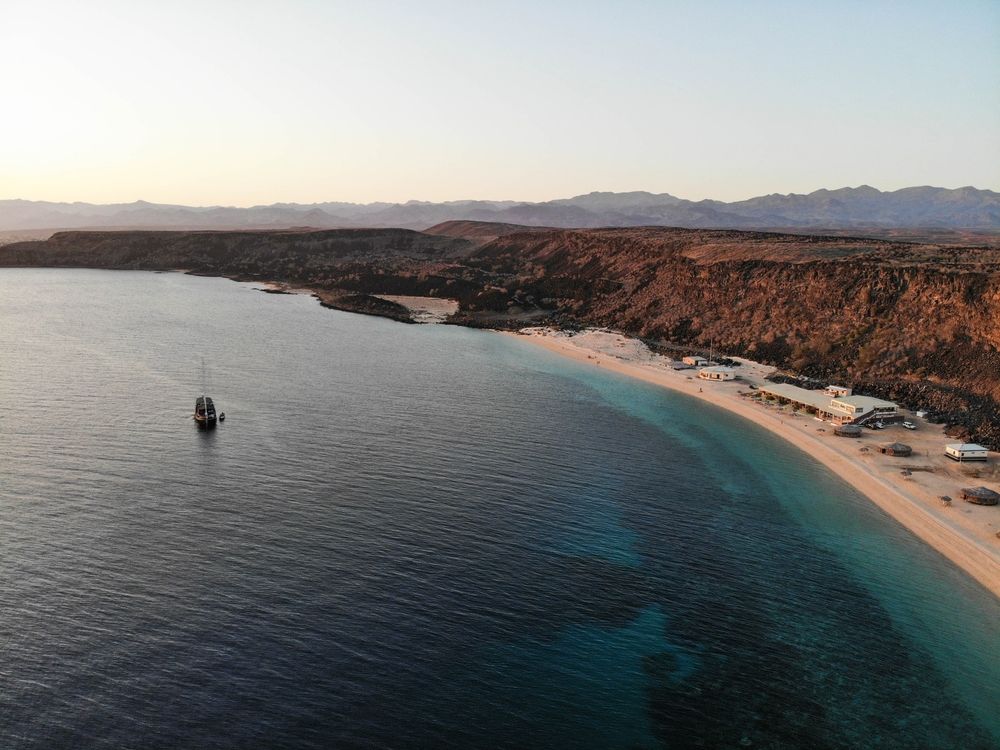
Djibouti is located in Eastern Africa, positioned on the horn of Africa and is a country that begins with D. It is a very small country - smaller than New Jersey, in fact - that is bordered by the countries of Eritrea, Ethiopia and Somalia. Looking to the coast, Djibouti borders the Red Sea, the Bab el-Mandeb strait and is positioned extremely close to the Suez Canal. It is thought that the name Djibouti orriginally came from the word Gabouti, which translates to flatland
As a result of the influx of global powers, who are establishing military bases in Djibouti, the country is rapidly urbanising, and is known for having a very high cost of living. In fact, Djibouti is sub-Saharan Africa’s most urbanised country. Despite this, however, Djibouti still has very high levels of poverty. Djibouti’s two main ethnic groups are Somali and Afar. The population of Djibouti is almost entirely Muslim (over 94%), the majority of whom are Sunni Muslims.
- Full name: The Republic of Djibouti
- Capital city: Djibouti city
- Location: Eastern Africa, on the horn of Africa
- Bordering countries: Eritrea, Ethiopia and Somalia
- Population size: over 920,000 (making it the smallest population size of any mainland African country)
- Currency: Djiboutian franc
- Official language: French and Arabic
- Major towns and cities: Djibouti City, Arta, Ali Sabieh, Dikhil, Obock and Tadjoura
- Religion: over 94% of the population is Muslim
During antiquity, Djibouti, Ethiopia, Eritrea and Somaliland formed the Land of Punt. The medieval Adal and Ifat Sultanates ruled the region from Zeila, which is located near to modern Djibouti. Djibouti was later colonised by France in the late 1800s. During this period, it was known as French Somaliland.
Djibouti gained its independence on the 27th June 1977, and it was on this date that it renamed itself Djibouti. To this date, you can still see considerable French influence in the country, particularly in its capital, Djibouti city. As a result of its extremely advantageous location, for such a small country, Djibouti has a major role in global geopolitics. Djibouti’s coastline borders the Red Sea. This is of paramount global importance, as one of the world’s busiest and most important waterways.
Furthermore, Djibouti is located very close to the Suez Canal. This waterway plays a key role in global trade. As a result, the Suez Canal is hugely important to countries across the world.
And thirdly, Djibouti also borders the Bab el-Mandeb strait. This strait is the entryway to the Suez Canal, and so the vast majority of ships travelling through the canal will have to enter through the Bab el-Mandeb strait. As a result, for trading countries, it is of paramount importance that they guarantee the security of this location.
In order to utilise its position, Djibouti has established numerous refuelling stations for ships, and is widely used by traders as a transshipment centre. It is also the primary maritime port for Ethiopia’s imports and exports.
As a result of its prime location, and its comparative stability, Djibouti has been identified by major world powers as a prime spot for their military bases. Today, America, the UK, Saudi Arabia, France, Saudi Arabia, China, Japan, Germany and Italy all have an extensive military presence in Djibouti.
4. Dominica
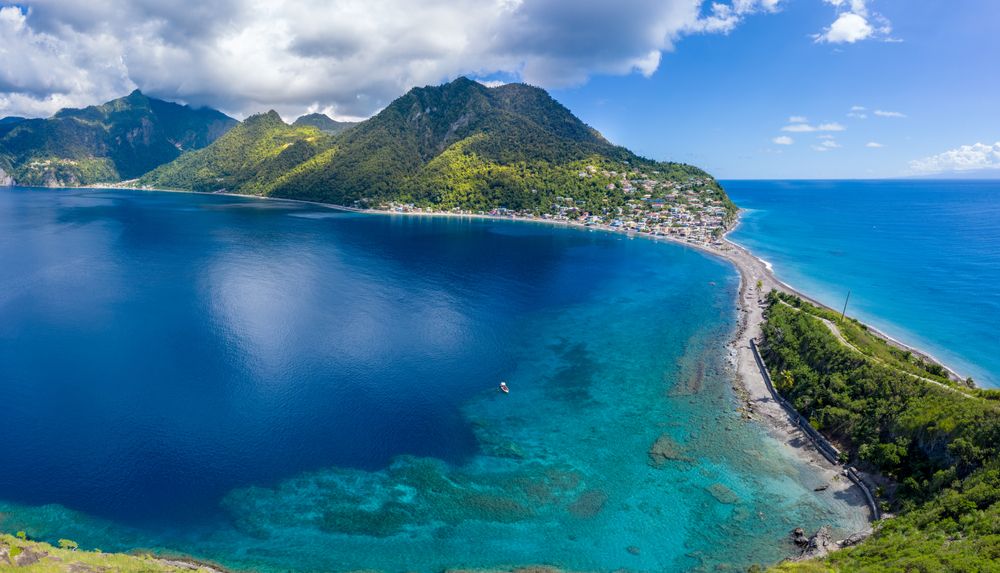
Dominica is an island located in the Caribbean Sea. The island is of volcanic origin and is surrounded by steep cliffs and ravines. The highest point on the island is Morne Diablotins, which has an elevation of 1,447 meters. Dominica has a tropical climate and is full of lush vegetation. The island is home to many different species of birds and animals.
Dominica is a popular tourist destination due to its natural beauty. The island has several beaches, including those at Grand Bay and Mero. There are also several hiking trails, waterfalls, and hot springs on the island with many resorts located nearby. Dominica is also a popular destination for scuba diving and snorkeling. Its capital city is Roseau.
5. Democratic Republic Of Congo
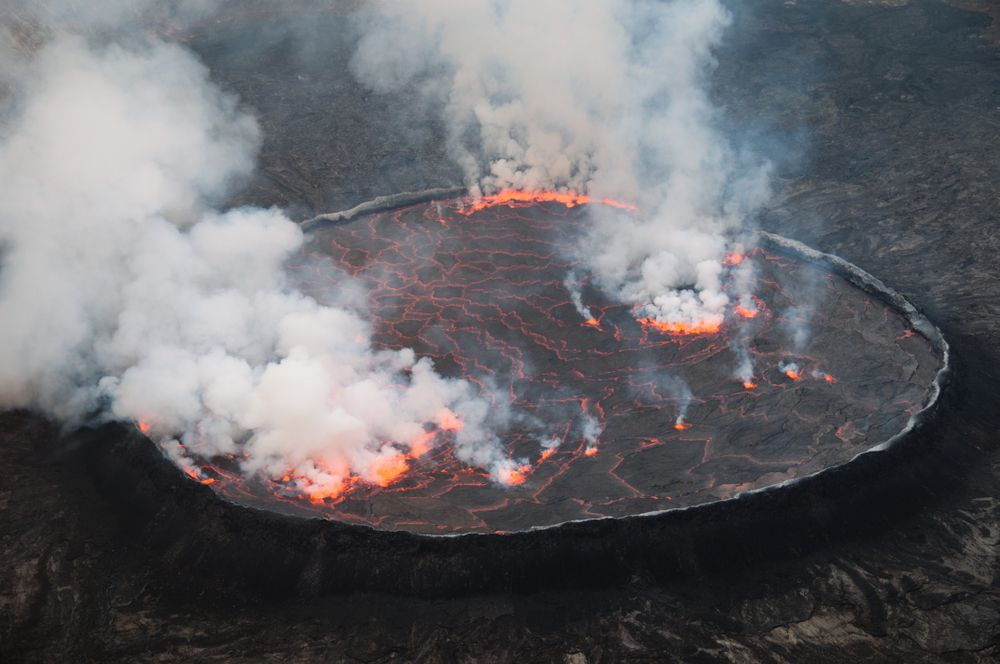
The Democratic Republic of Congo (DRC) is a country located in Central Africa. The capital and largest city of the DRC is Kinshasa which has given rise to the country's nickname, Congo-Kinshasa. The DRC is bordered by the Central African Republic to the north, South Sudan to the northeast, Uganda, Rwanda, Tanzania and Burundi to the east, Zambia and Angola to the south, and the Republic of the Congo to the west. It is the second-largest country in Africa after Algeria and the official language of the DRC is French. Its huge territory is home to a wide range of climates and territories including mountains, rainforests and flatlands.
6. Democratic People's Republic of Korea
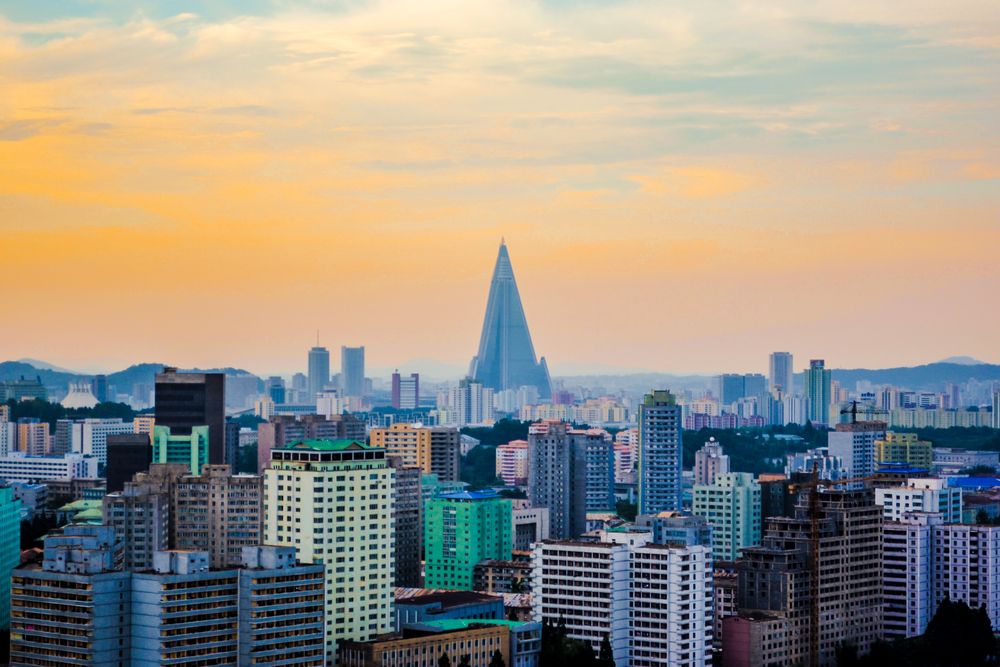
The Democratic People's Republic of Korea aka North Korea is a country located in the Northern side of the Korean peninsula. The capital city is Pyongyang. North Korea is bordered by China to the north, and by South Korea to the south. To the east of North Korea is the Sea of Japan, and to the west is the Yellow Sea.
The ruling party is the Workers' Party of Korea, which is led by the Supreme Leader. North Korea has a highly centralized government, and the economy is based on state-owned enterprises.
That concludes our list of countries that start with the letter D. Each one is unique in both its geography and culture, we hope you enjoyed learning a little about each one!


